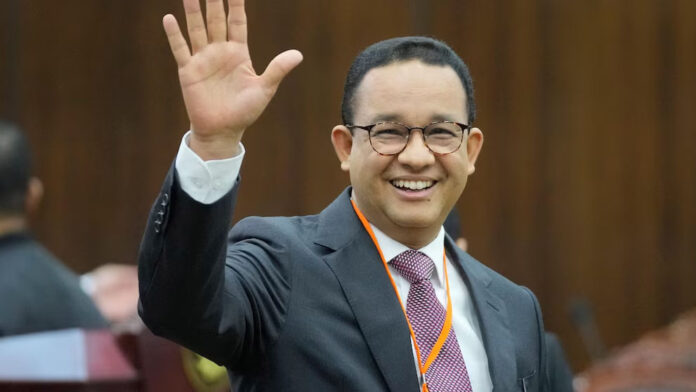Jakarta, Mar 27
Indonesia’s top court began hearing appeals on Wednesday against the presidential election results lodged by two losing candidates who allege widespread irregularities and fraud at the polls, demanding a revote.
The February 14 presidential election results were announced March 20. The winner, Defense Minister Prabowo Subianto, received more than 96 million votes, or 58.6 per cent, according to the General Election Commission, known as KPU.
Former Jakarta Gov. Anies Baswedan, who received nearly 41 million votes, or 24.9per cent, filed a complaint with the Constitutional Court on March 21, a day after the official results announcement.
Another candidate, former Central Java Gov. Ganjar Pranowo, who was backed by the governing Indonesian Democratic Party of Struggle, received the smallest share of votes at 27 million, or 16.5per cent. His legal team filed a complaint to the court on March 23.
Baswedan’s lawsuit claimed that irregularities occurred before, during and after the election that resulted in Subianto’s victory, and his legal team will reveal its evidence and arguments in the court hearings.
Subianto chose as his running mate Gibran Rakabuming Raka, the son of the popular outgoing president Joko Widodo. The Constitutional Court had made an exception to the minimum age requirement of 40 for candidates. Baswedan and Pranowo both criticized 37-year-old Raka’s participation in the election.
Anwar Usman, who was the court’s chief justice when the exception was made, is Widodo’s brother-in-law. An ethics panel later forced Usman to resign for failing to recuse himself and for making last-minute changes to the candidacy requirements, but allowed him to remain on the court as long as he does not participate in election-related cases.
The election complaints were heard separately Wednesday by the court, where Baswedan had the first turn in the morning and Pranowo was slated in the afternoon.
“We witness with deep concern a series of irregularities that have tarnished the integrity of our democracy,” Baswedan told the court. He specifically pointed to the court’s decision allowing Raka to run despite the previously established criteria.
He said there are also disturbing practices where regional officials are pressured or given rewards to influence the direction of political choices, as well as misuse of the state’s social assistance, which is actually intended for people’s welfare, “is instead used as a transactional tool to win one of the candidates.”
“If we do not make corrections, the practices that occurred yesterday will be considered normal and become habits, then become culture and ultimately become national character,” Baswedan said before the eight-judge panel. “The Indonesian people are waiting with full attention, and we entrust all this to the Constitutional Court who is brave and independent to uphold justice.”
The verdict, expected on April 22, cannot be appealed. It will be decided by eight justices instead of the full nine-member court because Usman is required to recuse himself.
In the past two elections, the Constitutional Court has rejected Subianto’s bids to overturn Widodo’s victories and dismissed his claims of widespread fraud as groundless. Subianto refused to accept the results of the 2019 presidential election, which pitted him against Widodo, leading to violence that left seven dead in Jakarta.
Widodo has reached his term limit and could not run again this year. He has faced criticism for throwing his support behind Subianto, who has links to alleged human rights abuses. Indonesian presidents are expected to remain neutral in elections to replace them.
Hefty social aid from the government was disbursed in the middle of the campaign — far more than the amounts spent during the COVID-19 pandemic. Widodo distributed funds in person in a number of provinces, in a move that drew particular scrutiny.
Home News International Indonesia’s top court begins hearing election appeals of 2 losing candidates alleging...



























